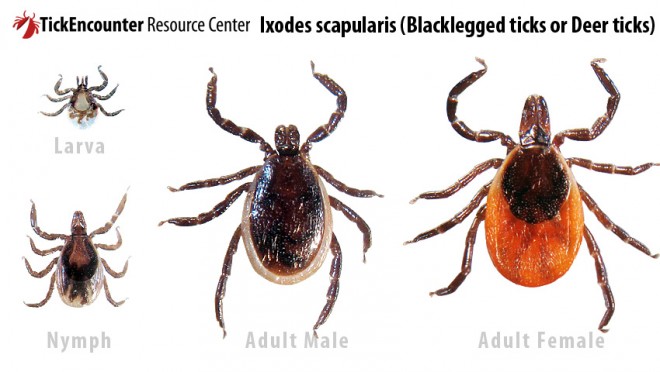
Spring appears to be here and hopefully with it, warmer temperatures. Spring is also a time when our pets will be exposed to the threats of fleas, mosquitoes and ticks.
The deer tick, Ixodes scapularis, is the main carrier of the bacterium Borrelia burgdoferi which causes Lyme disease in dogs and humans. This tick is endemic along the Lake Erie shoreline as well as the Kingston and Belleville area, but appears to be spreading. Cases of Lyme positive dogs have started to show up in the London area.
For transmission of Borellia burgdorferi to occur the tick must remain attached for a minimum of 24 hours. This allows for the tick to become fully fed. Following transmission of the bacteria it takes 3-5 weeks for a change to be noted screening tests. This is due to the time the body requires to develop detectable levels of antibodies to the foreign bacteria. Symptoms associated with lyme disease may not appear until up to 5 months following infection.
The most common signs of lyme disease in dogs are transient and shifting lameness, fever and anorexia. Lyme disease may also be asymptomatic, but fortunately it is detected by the same test for heartworm disease. It is possible for lyme disease to result in kidney damage in dogs. Therefore, it is important that cases of lyme disease are further investigated even if the dog has no clinical signs.
We encourage all pet owners to educate themselves about the risks and methods of prevention of Lyme disease. We are excited to announce that Scholl Animal Hospital is now carrying Nexgard, a new tick and flea control product. It contains the most effective drug class for the prevention of deer tick infestation and also prevents infestation with all other regionally important ticks. Please call our office to book your dog’s annual testing for heart worm, Lyme disease and other tick borne diseases today.
Click on the links below to find further information for you and your dog.
